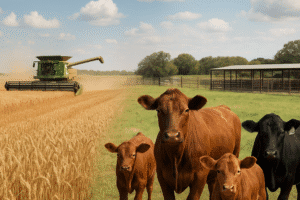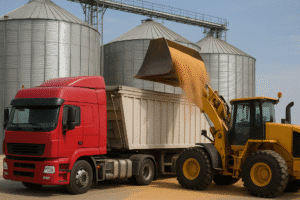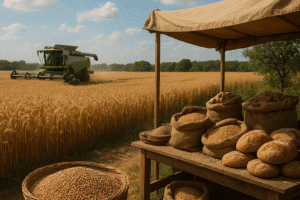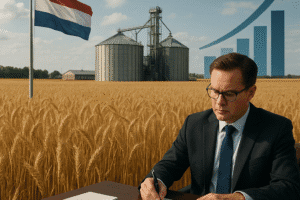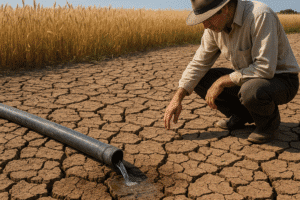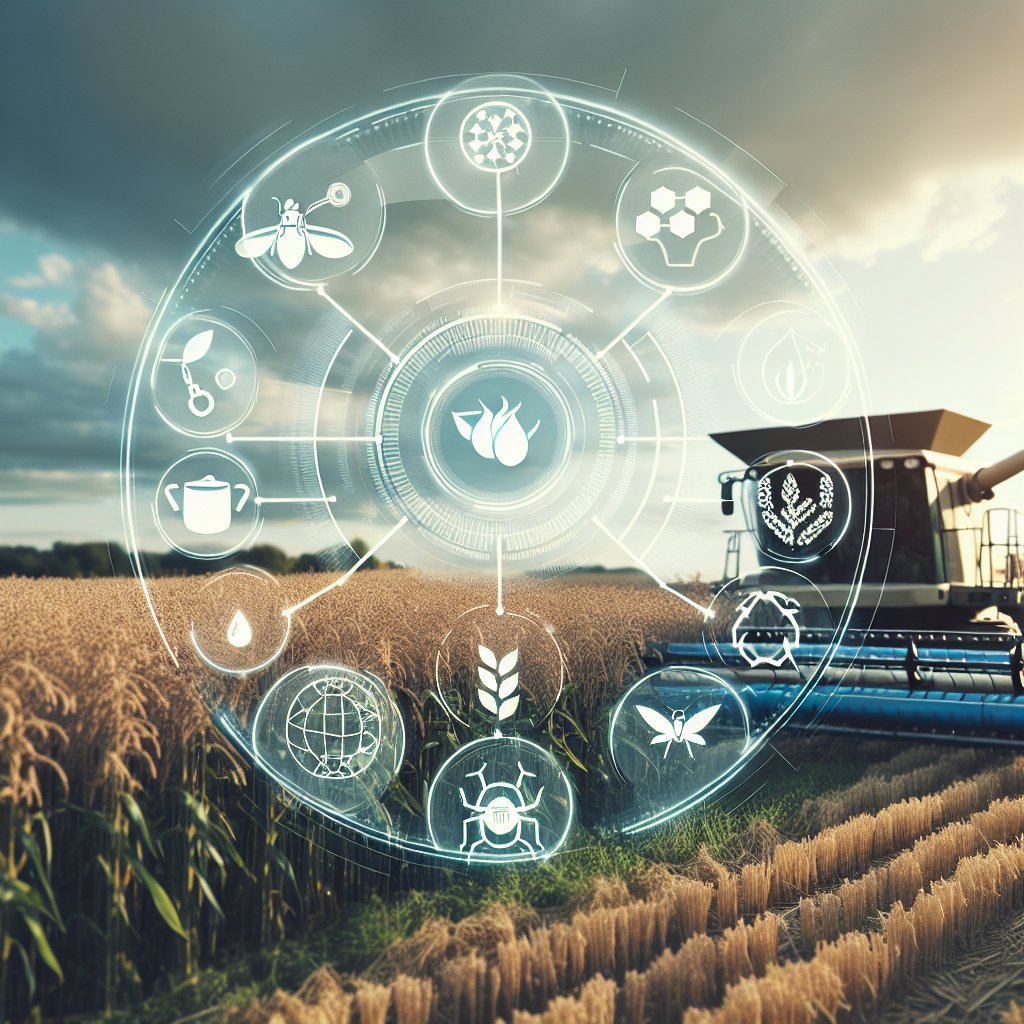Sustainability in the grain industry is a pressing concern that encompasses various environmental, economic, and social dimensions. As the global population continues to grow, the demand for grains such as wheat, rice, and corn is increasing, leading to significant challenges in sustainable production practices. This article explores the challenges faced by the grain industry in achieving sustainability and presents potential solutions to address these issues.
Challenges in Achieving Sustainability in the Grain Industry
The grain industry faces numerous challenges that hinder its ability to operate sustainably. These challenges can be categorized into environmental, economic, and social factors.
Environmental Challenges
One of the most significant environmental challenges in the grain industry is soil degradation. Intensive farming practices, including monoculture and excessive use of chemical fertilizers and pesticides, have led to the depletion of soil nutrients and a decline in soil health. This degradation not only affects crop yields but also contributes to increased greenhouse gas emissions.
Water scarcity is another critical issue. The grain industry is heavily reliant on irrigation, and in many regions, water resources are becoming increasingly limited. Over-extraction of groundwater for irrigation purposes can lead to the depletion of aquifers, negatively impacting both agricultural productivity and local ecosystems.
Additionally, the grain industry contributes to biodiversity loss. The expansion of agricultural land often comes at the expense of natural habitats, leading to the displacement of various plant and animal species. This loss of biodiversity can disrupt ecosystems and reduce resilience to climate change.
Economic Challenges
From an economic perspective, the grain industry faces volatility in market prices, which can impact farmers’ incomes and investment in sustainable practices. Fluctuating prices for grains can discourage farmers from adopting long-term sustainable practices, as they may prioritize short-term profits over environmental stewardship.
Moreover, access to technology and resources is often limited for smallholder farmers, particularly in developing countries. These farmers may lack the financial means to invest in sustainable farming practices, such as precision agriculture or organic farming, which can lead to a cycle of poverty and unsustainable practices.
Social Challenges
Socially, the grain industry grapples with issues related to labor rights and community engagement. In many regions, agricultural workers face poor working conditions, low wages, and a lack of access to education and healthcare. These social injustices can undermine efforts to promote sustainability, as marginalized communities may not have a voice in decision-making processes that affect their livelihoods.
Furthermore, the grain industry often struggles with the challenge of food security. While grain production is essential for feeding the growing population, the distribution of grains is often inequitable, leading to food insecurity in many regions. Addressing these social challenges is crucial for creating a sustainable grain industry that benefits all stakeholders.
Solutions for a Sustainable Grain Industry
Despite the challenges, there are numerous solutions that can help promote sustainability in the grain industry. These solutions encompass innovative agricultural practices, policy changes, and community engagement.
Innovative Agricultural Practices
One of the most effective ways to enhance sustainability in the grain industry is through the adoption of sustainable agricultural practices. Crop rotation, for example, can improve soil health and reduce the need for chemical inputs. By alternating different crops in a given field, farmers can enhance soil fertility and disrupt pest cycles, leading to healthier crops and reduced reliance on pesticides.
Another promising practice is the implementation of precision agriculture. This approach utilizes technology, such as GPS and data analytics, to optimize farming practices. By precisely monitoring soil conditions, moisture levels, and crop health, farmers can make informed decisions that minimize resource use and maximize yields. This not only benefits the environment but also improves economic viability for farmers.
Organic farming is also gaining traction as a sustainable alternative. By avoiding synthetic fertilizers and pesticides, organic farming practices promote biodiversity and soil health. While organic grains may have a higher production cost, the growing consumer demand for organic products can provide farmers with a lucrative market opportunity.
Policy Changes
Government policies play a crucial role in shaping the sustainability of the grain industry. Implementing policies that incentivize sustainable practices, such as subsidies for organic farming or funding for research on sustainable agriculture, can encourage farmers to adopt more environmentally friendly methods.
Additionally, policies that promote water conservation and efficient irrigation practices are essential in addressing water scarcity. Governments can invest in infrastructure that supports sustainable water management, such as rainwater harvesting systems and efficient irrigation technologies.
Trade policies also need to be re-evaluated to ensure that they support sustainable practices. By promoting fair trade and ethical sourcing, governments can encourage the grain industry to prioritize sustainability over short-term profits.
Community Engagement and Education
Engaging local communities and educating farmers about sustainable practices is vital for the success of sustainability initiatives in the grain industry. Community-based programs that provide training and resources can empower farmers to adopt sustainable practices and improve their livelihoods.
Furthermore, fostering collaboration between farmers, researchers, and policymakers can lead to innovative solutions tailored to local contexts. By sharing knowledge and resources, stakeholders can work together to address the unique challenges faced by their communities.
Consumer awareness also plays a significant role in promoting sustainability in the grain industry. By educating consumers about the importance of sustainable grains and encouraging them to support local and organic products, a demand-driven approach can incentivize farmers to adopt more sustainable practices.
Conclusion
Achieving sustainability in the grain industry is a complex challenge that requires a multifaceted approach. By addressing environmental, economic, and social challenges through innovative agricultural practices, policy changes, and community engagement, the grain industry can move towards a more sustainable future. As the global demand for grains continues to rise, it is imperative that stakeholders work collaboratively to ensure that grain production is not only efficient but also environmentally responsible and socially equitable.



